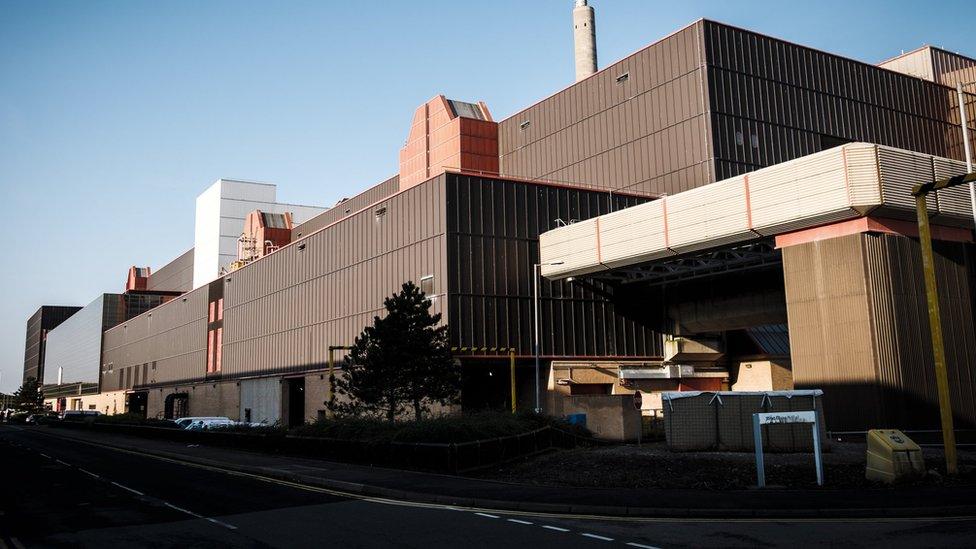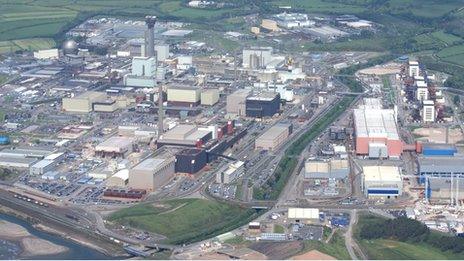Commercial nuclear reprocessing ends at Sellafield site
- Published

At one third of a mile long, Thorp is the largest building on the Sellafield site
Reprocessing of spent nuclear fuel from around the world has ended at Sellafield.
The last batch of waste has gone through its Thermal Oxide Reprocessing Plant (Thorp), which opened in 1994.
It has generated an estimated £9bn by extracting new nuclear fuel from 9,000 tonnes of used rods from 30 customers in countries as far afield as Japan.
Thorp will operate until the 2070s as a storehouse for spent fuel as the site around it in Cumbria is cleaned up.
Sellafield Ltd said there would be no redundancies as a result of the closure, with all employees in roles no longer required offered alternative jobs in the business.
The decision to wind it down was taken in 2012, as a result of the majority of its customers opting to store rather than reprocess their fuel.
Paul Foster, Sellafield Ltd's chief executive officer, said: "Thorp has been a west Cumbrian success story, it has delivered jobs, skills, pride, and prestige.
"Together we completed one of the largest and most complex construction projects ever undertaken in Europe."
- Published7 June 2012
